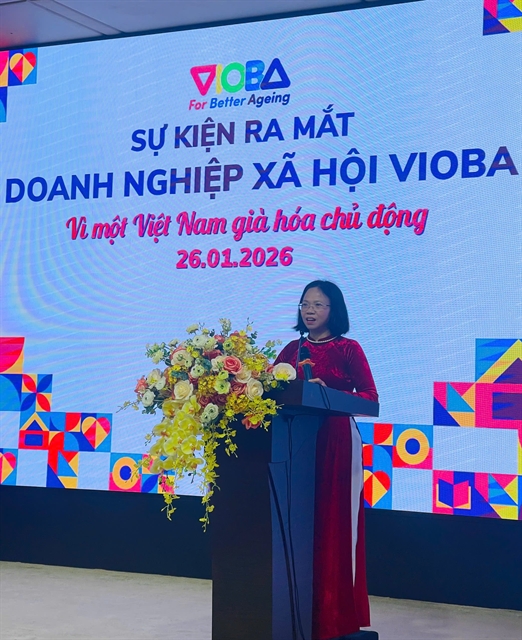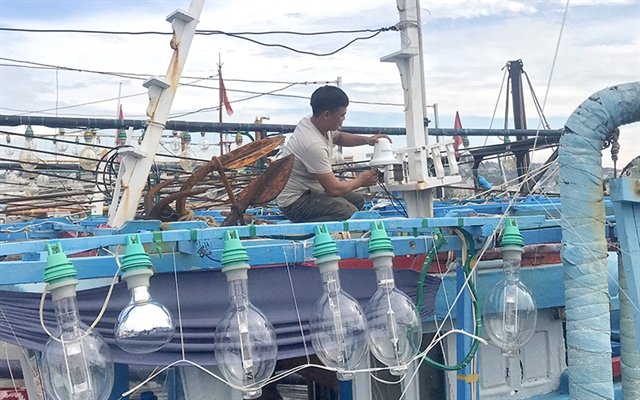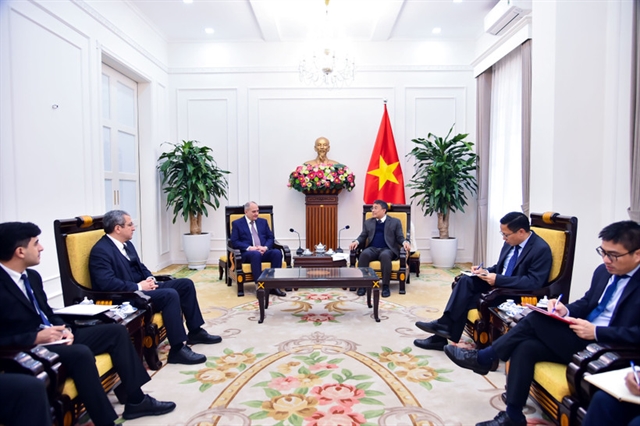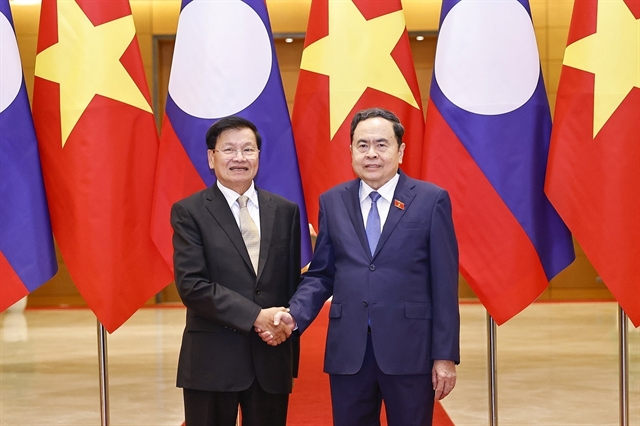 Society
Society


|
| A fisherman in the south-central region installs the cruise monitoring system for offshore fishing. — Photo nhandan.com.vn |
HÀ NỘI — Local authorities of south-central provinces have taken strong and prompt actions to combat illegal, unreported and unregulated (IUU) fishing in an effort to help the local fishery sector remove the formal warning (yellow card) imposed by the European Commission and support farmers to recover from losses.
The EU-Việt Nam Free Trade Agreement (EVFTA) which took effect from August 1, 2020, has facilitated the export of Vietnamese seafood to the EU market. However, in order to enter this market, Vietnamese fishery products must meet the requirements against IUU fishing. In other words, only when the yellow card is removed, will Vietnamese seafood products be qualified for export to the EU.
According to the Department of Agriculture and Rural Development of Khánh Hòa Province, due to the EU’s yellow card for Vietnamese seafood products, the processing and export output of 44 local businesses has suffered heavy losses.
It is estimated that the provincial seafood export turnover this year fell by nearly 23 per cent due to the yellow card as the EU is a big export seafood market of Việt Nam.
All fishery products exported from Việt Nam to the EU during the warning period must have their exploiting origin traced.
Local authorities of south-central provinces and cities have considered the removal of the yellow card and taking action against IUU fishing as a key mission.
Nguyễn Trọng Tùng, director of Phú Yên Province’s Department of Agriculture and Rural Development, said inspection teams had been mobilised frequently to supervise the task of combating IUU fishing at fishing ports. Heads of organisations or groups have to take responsibility for violations.
Fisherman Phạm Đạn living in Ward 6, Tuy Hòa City, Phú Yên Province, said through dissemination sessions, local fishermen were updated on the warning from the EU and forms and levels of sanctions if they violate international waters.
"We only thought about catching as many fish as we could. Now after knowing about the warning and its consequences, we understand that fishing without legal compliance would affect our source of income," he told Nhân Dân (People) newspaper.
Inspectors of the Fisheries Department of Khánh Hòa Province are on duty round the clock to supervise offshore fishing vessels which are equipped with cruise monitoring systems to give them warnings if they encroach foreign waters. As many as 635 out of 759 fishing vessels in the province have installed the cruise monitoring system.
According to the acting director of Bình Định Province’s Department of Agriculture and Rural Development, the cruise monitoring system’s installation is a compulsory criterion to make the vessels qualified for offshore fishing. Although the system costs between VNĐ19 million to VNĐ23 million to install, all fishing owners have followed the regulation.
All offshore fishing vessel owners in the province have signed commitments of not violating foreign waters.
In Bình Thuận Province, as many as 1,796 ships with a length of 15m or more have had cruise monitoring equipment installed. That means more than 93 per cent of the total of the province’s ships have cruise monitoring equipment, higher than the national average of 82 per cent.
Huỳnh Quang Huy, head of the provincial Fisheries Department, said: “In the context of difficult conditions without any support for purchasing and installing the cruise monitoring system, most of the fishermen in the province have invested in the installation by themselves, which shows a positive change in their awareness.”
Thanks to the efforts, since July last year, Bình Thuận Province has had no IUU violations reported. More than 2,700 tonnes of seafood with verified origin have been given certificates for export.
The EU recently acknowledged Việt Nam’s efforts in increasing management of fishing density through freezing offshore fishing fleets, saying that Việt Nam had made great efforts to install fishing vessel monitoring systems, provide regulations and implement gear marking fishing vessels based on the EC’s recommendations.
However, some shortcomings were pointed out, such as slow progress of installing cruise monitoring equipment on fishing vessels, restricted surveillance systems, as well as inconsistent sanctioning on violations among localities.
Nguyễn Trung Hiếu, head of Hòn Rớ Port’s management board in Khánh Hòa Province, said fishing vessels which have not installed the cruise monitoring system would not be allowed to go offshore.
The port would not buy seafood exploited by fishing vessels violating EU regulations and would trace origin of the fishery products before issuing the import permission. All of those efforts aimed to maintain Việt Nam as a key seafood exporter of the EU, looking towards a sustainable, responsible and integrating fishery sector, he said. — VNS





 Brandinfo
Brandinfo